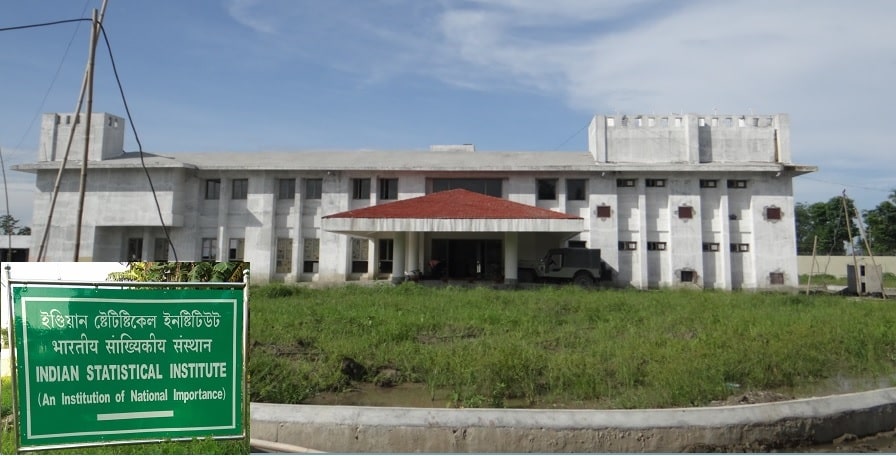Revitalizing the Indian Statistical Institute

The Indian Statistical Institute (ISI) has been a cornerstone of statistical research and education in India since its establishment in 1931 by the eminent statistician, Prof. Prasanta Chandra Mahalanobis. Recognized as an institution of national importance through the Indian Statistical Institute Act of 1959, ISI has continually advanced statistical methods and their applications across various fields. Recently, the ISI Council, which governs the institute, has taken significant steps to enhance its role in statistical sciences. In its first meeting on October 26, 2024, the newly constituted council elected Dr. Koppillil Radhakrishnan as its chairman. Dr. Radhakrishnan, a Padma Bhushan awardee and former head of the Indian Space Research Organisation (ISRO), brings a wealth of experience to this prestigious role.
The 4th Review Committee’s Transformative Roadmap
In 2020, the Central Government established the 4th Review Committee for ISI, led by Dr. R.A. Mashelkar, a distinguished scientist and former Director-General of the Council of Scientific and Industrial Research (CSIR). The committee’s mission was to assess ISI’s performance and recommend a roadmap for its future. Through extensive consultations with stakeholders, including faculty, students, alumni, and industry experts, the committee conducted a thorough review of ISI’s achievements and challenges. The resulting report outlined 61 actionable recommendations aimed at rejuvenating ISI’s role in advancing statistical sciences both in India and globally.
The committee’s recommendations were centered around the theme “Reimagine, Reinvent, and Reposition.” They emphasized the need for governance reforms, academic program expansions, and enhanced research priorities. The committee also highlighted the importance of modernizing infrastructure and ensuring financial sustainability. By engaging with various stakeholders, the committee aimed to align ISI’s goals with the expectations of the academic community and industry, ensuring that the institute remains relevant in a rapidly changing world.
Key Recommendations for Growth and Development
The committee proposed a comprehensive set of recommendations that focus on several critical areas. First, it called for governance reforms to enhance accountability through performance-based evaluations. This would establish clear work norms for faculty and staff, ensuring that everyone is aligned with ISI’s mission. Additionally, the committee recommended expanding academic programs to include emerging fields such as data science and machine learning. This expansion would not only increase student intake but also enhance the institute’s impact on the global stage.
Furthermore, the committee stressed the need for interdisciplinary research projects that address national and international challenges. By promoting collaboration across various disciplines, ISI can foster innovative solutions to pressing issues. The recommendations also included modernizing administrative processes and research methodologies through advanced digital tools. This modernization is crucial for building world-class computing and laboratory infrastructure that supports innovative research.
Implementation and Future Vision
The ISI Council has already begun implementing the committee’s recommendations, demonstrating a commitment to strengthening the institute’s role in addressing India’s socio-economic development needs. During its second meeting on January 23, 2025, the council reviewed the status of these implementations. The council’s approach is phased, focusing on short-term, medium-term, and long-term goals.
Short-term initiatives include immediate actions to address critical issues such as faculty recruitment and infrastructure upgrades. Medium-term goals aim to enhance academic and research programs while improving financial sustainability. The long-term vision is to transform ISI into a global leader in statistical sciences by its centenary year in 2031. This vision includes impactful research, innovative education, and strong industry connections.
As ISI moves forward, it is also focusing on improving its structure and strengthening research capabilities. The establishment of centers like the Centre for AI and ML (CAIML) aligns with national policies and emphasizes strategic relevance. The institute is committed to adopting advanced digital teaching methods, including online and hybrid courses, as part of its broader academic enhancement strategy.
Observer Voice is the one stop site for National, International news, Sports, Editor’s Choice, Art/culture contents, Quotes and much more. We also cover historical contents. Historical contents includes World History, Indian History, and what happened today. The website also covers Entertainment across the India and World.
Follow Us on Twitter, Instagram, Facebook, & LinkedIn

